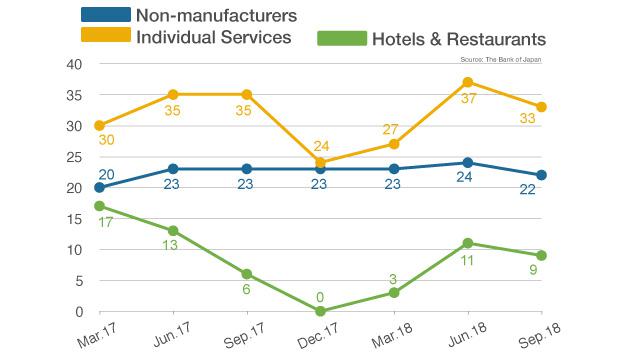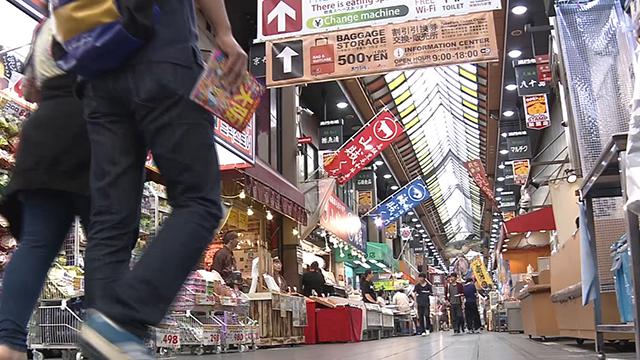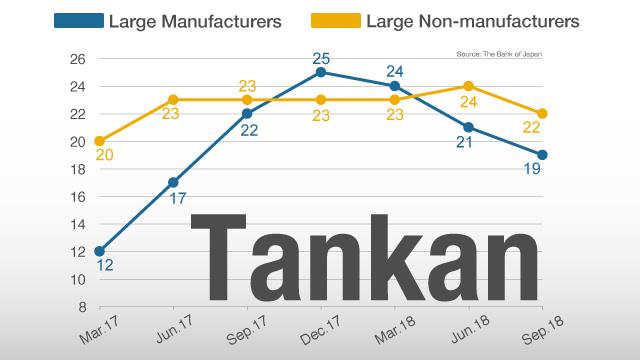What is the Tankan?
The Tankan is a quarterly survey carried out by the Bank of Japan. Officials send out questionnaires to about 10,000 companies to ask what they think about business conditions.
The index represents the difference in the percentage of companies that say business is good and those that say it's bad. A positive reading means more companies are optimistic than not. The Tankan is regarded as an important economic indicator and has a considerable influence on stock and currency markets.
Tankan data
Business sentiment among Japan's large non-manufacturers worsened in September compared with 3 months earlier. It was the first drop in two years. Economists put the blame largely on a succession of earthquakes, typhoons and other natural disasters, which caused a drop-off in visitors to Japan.
The survey shows tourism-related firms were hit especially hard. The index for individual services, which includes amusement parks and recreational facilities, fell by 4 points. For hotels and restaurants, it was down by 2 points.

What businesses are saying
A worker at a ramen shop in Osaka says that after Typhoon Jebi struck the prefecture in early September, the number of foreign customers fell by half. Severe flooding caused the temporary closure of nearby Kansai International Airport, a major transport hub. Immigration officials say that for a few days, there were no foreign visitors at all entering Japan through the airport. The figure has since recovered to pre-disaster levels. But it's a different story at the ramen shop, where business is yet to fully recover and management has been forced to cut the number of workers.

After a powerful earthquake struck the northern island of Hokkaido in September, a drugstore chain there recorded a drop in sales for several days. Hotels also suffered, with at least 942,000 people cancelling bookings.
Almost a month has passed, but the drugstore operator says sales at some of its branches are still down by as much as 20 percent. The firm has been using its Korean and Chinese Facebook pages to notify international customers that its stores are open for business as usual.
What the government, firms should do
The overall impact of the disasters on the national economy will be limited, believes Koya Miyamae, senior economist at SMBC Nikko Securities. But as the Tankan shows, businesses are still feeling the pain, and they're worried that negative rumors about the safety of their regions could continue to inflict financial losses.
Miyamae points out that firms in disaster-hit areas have recovered much faster than expected. He says the government and companies should put more effort into letting the world know that business is getting back to normal.

